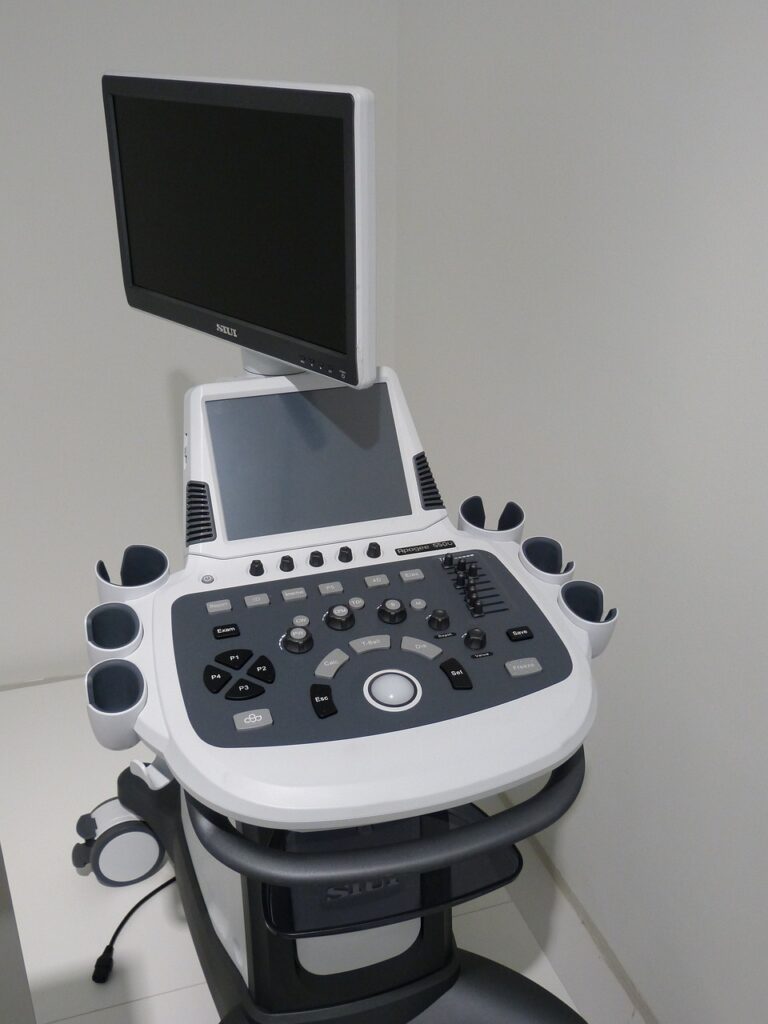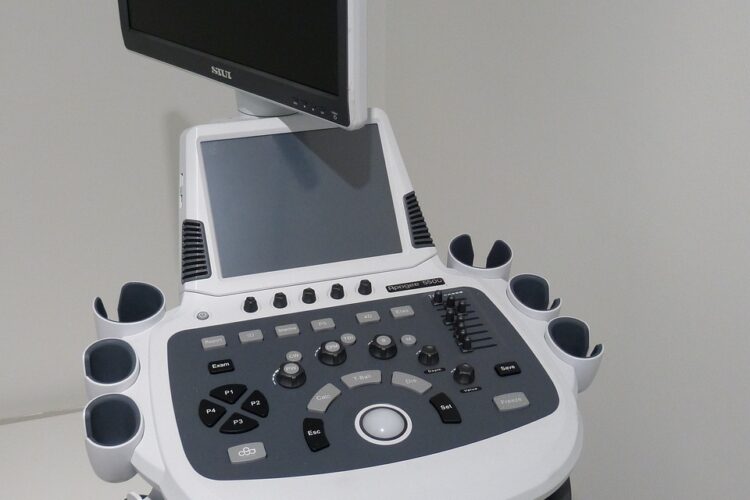
An ultrasound technician, also known as a sonographer or diagnostic medical sonographer, plays a vital role in the healthcare industry. This highly specialized professional is responsible for operating ultrasound equipment that uses sound waves to create images of the internal organs and tissues of patients. The images produced are crucial for diagnosing various medical conditions, assisting physicians in determining the best course of treatment.
With advancements in medical technology and an increasing demand for non-invasive diagnostic tools, ultrasound tech careers have seen a significant rise in popularity. If you’re considering a career in this field, understanding the essential requirements, job prospects, and educational pathways is the first step toward a successful career in sonography.
What Is an Ultrasound Technician?
An ultrasound technician is a healthcare professional who specializes in using ultrasound equipment to perform diagnostic imaging procedures. The primary goal of an ultrasound technician is to capture high-quality images of a patient’s organs, tissues, and blood vessels, which are used to assist in the diagnosis of various medical conditions such as pregnancy, heart disease, and internal injuries.
Key Duties and Responsibilities of an Ultrasound Technician
The responsibilities of an ultrasound technician extend beyond just operating machinery. Some of their core duties include:
- Performing Diagnostic Imaging Procedures: Ultrasound technicians operate specialized equipment to capture images of a patient’s internal body parts. These images are essential for detecting health issues, such as tumors, gallstones, and blood clots.
- Interacting with Patients: Ultrasound technicians communicate with patients before, during, and after the procedure. They explain the process and ensure that the patient is comfortable throughout the imaging session.
- Preparing and Maintaining Ultrasound Equipment: Ensuring the ultrasound machine is properly calibrated and functioning is crucial. Regular maintenance and troubleshooting are part of the technician’s daily responsibilities.
These responsibilities require a combination of technical skills, attention to detail, and interpersonal abilities, all of which are crucial for delivering quality care.
How Do I Become an Ultrasound Technician?
Becoming an ultrasound technician requires a combination of formal education, hands-on training, and professional certification. The steps are designed to equip you with the necessary skills and knowledge to operate ultrasound equipment effectively and provide high-quality diagnostic results.
Education and Training Requirements
To pursue a career as an ultrasound technician, you will need to complete an accredited ultrasound tech program. Most programs are offered through community colleges, technical schools, or universities and typically range from one to four years.
- Certificate Programs: These are typically shorter, taking around one year to complete, and are ideal for individuals who already have a background in healthcare or a related field.
- Associate’s Degree: This is the most common pathway, taking about two years to complete. It combines coursework in medical imaging technology with hands-on clinical training.
- Bachelor’s Degree: For those seeking higher-level opportunities or specialization, a four-year bachelor’s degree in diagnostic medical sonography can open doors to managerial or supervisory positions.
Certification and Licensing for Ultrasound Technicians
In most states, becoming a certified ultrasound technician is a requirement. Certification ensures that you meet the professional standards for operating ultrasound equipment and providing accurate diagnostic imaging.
The most widely recognized certification is offered by the American Registry for Diagnostic Medical Sonography (ARDMS). Obtaining certification from ARDMS typically involves passing exams that test your knowledge of ultrasound technology and procedures.
What Are the Salary and Job Outlook for Ultrasound Technicians?
The salary for an ultrasound technician can vary significantly based on factors such as experience, location, and specialization. However, on average, the salary range for an ultrasound technician is $70,000 annually, with some areas offering higher wages due to demand.
Factors Influencing Ultrasound Tech Salary
- Location: Ultrasound tech salary can vary by region, with states such as California, Texas, and New York offering higher pay due to a higher cost of living and greater demand for healthcare services.
- Experience: As with many healthcare professions, the more experience you have, the higher your salary potential. Technicians with 5+ years of experience often earn a significantly higher income compared to those just entering the field.
- Specialization: Certain areas of specialization, such as cardiovascular sonography, tend to offer higher salaries due to the complexity of the work.
Job Opportunities and Career Growth
The job outlook for ultrasound technicians is promising, with employment expected to grow at a much faster rate than the average for all occupations. According to the U.S. Bureau of Labor Statistics, ultrasound tech job growth is projected to increase by 12% over the next decade, making it an attractive career option for those interested in healthcare.
As technology continues to evolve, opportunities for ultrasound technicians will also expand. Specializing in areas such as vascular sonography or musculoskeletal sonography can provide additional job opportunities and career growth.
Ultrasound Technician Career Path and Advancement
Once you’ve entered the ultrasound tech field, there are plenty of opportunities for career advancement. You can pursue further education, earn additional certifications, or specialize in certain areas to increase your skill set and open doors to new job opportunities.
Specializations within the Ultrasound Tech Career
There are various specializations within ultrasound technology, each focusing on a specific area of the body or diagnostic procedure. Specializations can lead to higher pay and greater job security. Some common specializations include:
- Obstetric Sonography: Focuses on imaging pregnant women and monitoring the health of the fetus.
- Cardiovascular Sonography: Specializes in imaging the heart and blood vessels.
- Abdominal Sonography: Involves imaging internal organs such as the liver, kidneys, and gallbladder.
These specializations offer not only higher salary potential but also the chance to work in more focused and rewarding roles.
Advancing Your Career as an Ultrasound Technician
Ultrasound technicians can advance their careers by gaining additional experience or pursuing management roles within healthcare institutions. Technicians can also transition into teaching or supervisory positions or open their own private practice.
How Long Does It Take to Become an Ultrasound Technician?
Becoming an ultrasound technician generally takes anywhere from one to four years, depending on the program you choose.
Part-Time vs. Full-Time Ultrasound Tech Programs
- Full-Time Programs: Typically take two years to complete and allow students to focus solely on their studies and clinical training.
- Part-Time Programs: Offer more flexibility, allowing students to work while completing their studies. These programs typically take longer to finish but are ideal for those who need to balance other responsibilities.
What Is the Work Environment Like for Ultrasound Technicians?
Ultrasound technicians typically work in a variety of healthcare settings, including hospitals, clinics, private practices, and diagnostic imaging centers.
Ultrasound Techs in Hospitals vs. Private Clinics
- Hospitals: Ultrasound technicians in hospitals may work in fast-paced environments, with exposure to a wide variety of cases, including emergency situations.
- Private Clinics: Working in a private clinic may offer a more predictable schedule and a more intimate work environment, with fewer emergency situations.
Are There Online Programs for Ultrasound Tech Certification?
Yes, there are online ultrasound tech certification programs available, making it easier for those who cannot attend traditional in-person courses to pursue their career goals.
Top Online Ultrasound Tech Programs
Some of the best online programs for ultrasound technician certification include options provided by reputable universities and medical institutions. Be sure to choose a program that is accredited by the Commission on Accreditation of Allied Health Education Programs (CAAHEP).
Conclusion
If you have an interest in healthcare and enjoy working with technology, becoming an ultrasound technician can be a highly rewarding career. With a strong job outlook, good salary potential, and multiple opportunities for advancement, ultrasound techs are in demand more than ever. Whether you’re just starting or looking to further your education, there are plenty of pathways available to help you succeed in this dynamic field.
FAQs
How long does it take to become an ultrasound technician?
It generally takes about 2-4 years to become a fully certified ultrasound technician, depending on whether you pursue a certificate, associate’s, or bachelor’s degree.
How much does an ultrasound tech earn annually?
The average salary for an ultrasound technician is around $70,000 per year, though it can vary based on location, experience, and specialization.
Do ultrasound technicians need a certification?
Yes, most states require ultrasound technicians to hold certification from recognized bodies like ARDMS to practice legally and meet professional standards.
What is the job outlook for ultrasound technicians?
The job outlook for ultrasound technicians is excellent, with a projected growth rate of 12% over the next decade, higher than most other occupations in healthcare.
Can I work as an ultrasound technician without a degree?
Most employers require at least an associate’s degree in diagnostic medical sonography. Some entry-level positions may be available with a certificate, but a degree is generally preferred.
